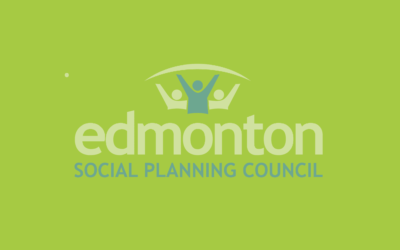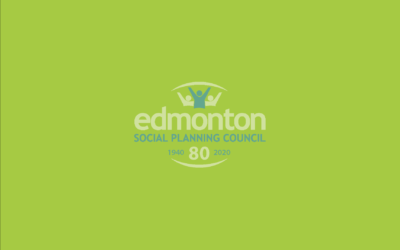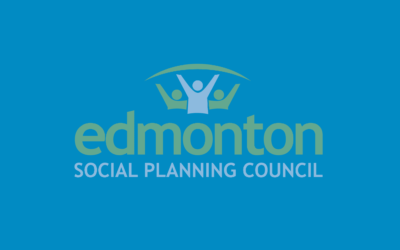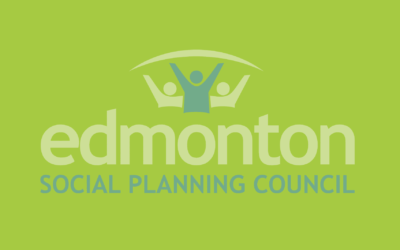Blog: Low Income Single Adults: How stereotypes can make us forget people

Introduction
Recent attention has been given to low-income single adults, describing them as the “forgotten poor.” More people are living as singles—as a share of the population, single people have grown from 9% in 1981 to 14% in 2016. Despite Canada-wide anti-poverty measures, many single adults are struggling to meet their basic needs. A recent study by the Institute for Research on Public Policy (IRPP) found that working-age singles make up the largest proportion of people who access social assistance, and they are three times as likely to live in poverty as the average Canadian.
IRPP argues that single adults have been overlooked by policy reforms and largely “forgotten” by social policy. This blog post will illuminate how singles are “forgotten” due (in part) to stereotypes and stigma about able-bodied working-age singles.
Income Supports and Living in Edmonton
A single adult who is “expected to work” can receive $415 in core essential benefits and $330 for private shelter through Alberta Works every month. Within Edmonton, in 2018 the median income of singles living in poverty (both those who are on and those who are not on income support) was $13,150. This was $8,683 below the low-income cut-off.
The cost of living in Edmonton far surpasses what people living on low incomes earn. In 2020, the rent for a bachelor apartment was, on average, $881 a month. In 2019, a nutritious diet for an adult male (aged 31–50) would cost about $76.50 a week (or $306 a month assuming a 4-week month). Many single adults cannot afford their basic needs and end up living is substandard housing, skipping meals, and relying on community services to survive.
Poverty reduction is a priority for federal and provincial governments. The enhancement of child benefits, for example, have succeeded in lifting many children and families out of poverty. However, outside of modest income supports and GST credits, there is little support available to single, able-bodied adults. So, the question remains, why are singles being left out of poverty reduction measures?
Stereotypes and Stigma
For better or worse, our society judges people who use income and social supports. Western society’s focus on neoliberalism leads us to believe that individuals are responsible for their own situation. People are expected to get a job and work hard to support themselves, make good decisions to get ahead in life, and are ultimately responsible for their success in life as well as their failures.
As a result, single, working age, able-bodied adults are often stigmatized and blamed for their poverty. They are judged to be poor because they were lazy and did not work hard enough, or made irresponsible decisions with their money. There is a pervasive myth that people living in poverty lack morals and “choose” to stay on income supports instead of working for money. People living on low incomes or income supports are stereotyped as not caring about education, hard work, or other things that middle class society cares about. These kinds of judgements may implicitly inform programs designed to help low-income single adults.
Alberta income supports have very stringent eligibility criteria. In the “expected to work” category, recipients often must prove they are looking for work or upgrading their employment skills to continue to receive payments. Any additional payments that recipients access (such as special diet, transportation, medical costs) also require regular proof they “need” it. These processes have harmful effects on single adults accessing income supports. First, it can be a lot of work to constantly prove themselves. For example, an income support recipient may have to go to the doctor every few months to get a note to prove they still need a special diet. This time and energy could be put into better things that could improve their well-being. Second, these processes promote this idea that people on income support are untrustworthy or trying to fraud the system. Income support recipients must “prove” they won’t be dependent on the system for long periods of time, prove they can make responsible decisions, and prove they are not lying to get more money. It can be demoralizing to constantly prove yourself and your need.
Current Events
Income Support does not provide enough money to support single adults to live in Edmonton, and can leave these individuals feeling judged and demoralized. However, instead of supporting low-income single Edmontonians more, income supports are undergoing further cuts. In the 2021 budget, Income Support was cut by $66 million. Income Support recipients have shared anecdotal evidence that their additional payments have been removed with little warning, and they need to jump through hoops to get those payments again. Alarmingly, many have also shared fears of becoming homeless.
Government transfers provided unconditionally, that is, without having to prove deservedness, are essential to ensure low-income single adults are not forgotten or left out of poverty reduction measures. Unconditional government transfers are not a new idea. GST credits are available to all low- and modest-income individuals and families in order to offset the GST they pay. An individual does not have to “prove” their neediness or meet programming obligations in order to receive payments, they just have to file their taxes and report a low income.
These credits provide low-income individuals with more resources to make ends meet, without imposing judgments on them. However, more supports are needed. Universal Basic Income (UBI) is an unconditional payment from the government directly to individuals. It can provide low-income single adults with the resources they need to survive, while also adding security of consistent access to a sufficient income and removing stigma. A UBI can be a powerful tool to ensure single adults are no longer forgotten.
Read our Winter Research Update for a review of the IRPP report.
Sources:
Single Adult study: https://irpp.org/research-studies/canadas-forgotten-poor-putting-singles-living-in-deep-poverty-on-the-policy-radar/
Neoliberalism description: https://www.theguardian.com/books/2016/apr/15/neoliberalism-ideology-problem-george-monbiot
Alberta works payments. https://www.alberta.ca/income-support-what-you-get.aspx
Nutritious food basket https://open.alberta.ca/dataset/de65c7d1-d133-4518-a133-2325378289d2/resource/f4bccae3-87bb-4869-8651-bccd40708359/download/af-edmonton-nutritious-food-basket-prices-overview-2018-2019.pdf





